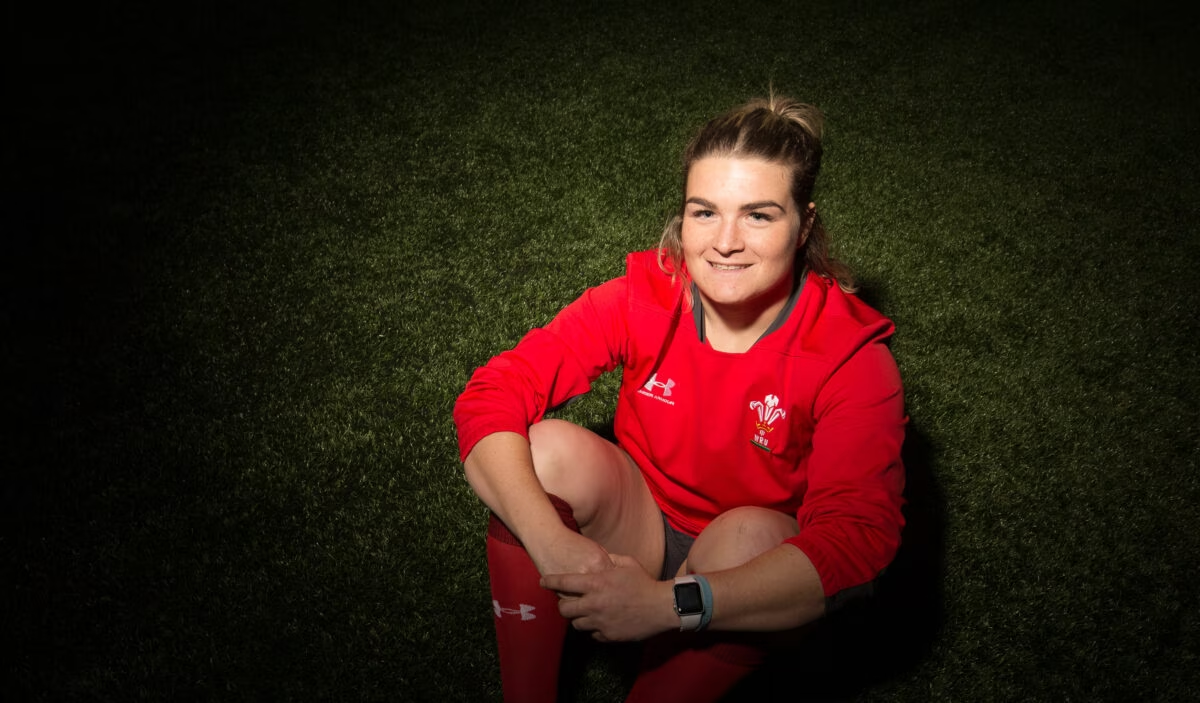Wales Women players have spoken about the positive and negative impact of social media.
After taking part in a wide-ranging BBC survey on many areas affecting women in sport, the issue of social media trolling stood out.
Of more than 530 elite sportswomen that completed the survey, more than 30% said they’d experienced different levels of social media trolling or harassment, a figure that has doubled since the last survey of this kind in 2015.
Two Wales Women players at opposite ends of the scale in terms of international experience – 56-times capped Elinor Snowsill and five-times capped Robyn Lock confirmed they had both been subject to this kind of unsolicited attention.
While they are quick to welcome the advantages social media brings to women’s sport, there is no place for abuse of any kind in Welsh rugby.
Snowsill said, “I think social media is vital, especially in women’s sport. We are able to talk directly to fans and we can have a positive impact on aspiring sportswomen.
“However, the constant private messages I get when I post something can feel a bit like harassment. It’s such a strong word but if that person was constantly coming up and reacting to everything you did in real life, it would feel a bit odd.
“It can be emoji reactions with heart eyes or blowing kisses. Or comments like ‘very nice’, ‘looking good’. Other ones are completely random like telling me something about themselves. If it carries on, most of the time I block them.
“I had one who commented on something that made me think he was near and knew where I was. I had just posted and I was in a public place. That did scare me a bit. I blocked him and I’m quite careful with what I put up now.
“It’s never women who do it. It feels more threatening because if there ever was a situation where someone took it to the extreme, generally men have more power in a situation than women because they’re stronger. It just has that different edge to it.
“What kind of mindset are they in that they would constantly do something without ever getting a response?
“It just makes you question where their limit is. You don’t know them and they often don’t have pictures of their faces in their profiles. You can’t actually find out anything about them. That’s what makes it more threatening.”
Robyn Lock has also experienced both sides of social media. After receiving her first call-up to the Wales squad five years to the day after being diagnosed with stage four non-hodgkins lymphoma, her story inspired many around the world.
However, she too feels many step over the mark when it comes to social media trolling, something she feels wouldn’t necessarily happen to a male player.
Sound on.
Representing Wales this autumn would cap an incredible journey for @SwanseaRFCWomen and @ospreys_women backrow Robyn Lock who was diagnosed with non-Hodgkin lymphoma 5 years ago but has never taken a backward step
In her words and https://t.co/uoExYrbGfY pic.twitter.com/gTZHdxHlcG— Welsh Rugby Union (@WelshRugbyUnion) October 24, 2019
“Social media can be such a powerful force for good. I had so many uplifting comments when I spoke about my cancer for example – my position is if I can help just one person feel stronger through such a tough time, I’m happy.
“However, as an athlete, I get comments saying I’m too muscly, not feminine enough. I’ve been told I’m ‘not a proper athlete’, and trolled by men saying they would be more likely to make it in women’s rugby if they were a woman.
“I feel as a woman, you can’t be seen to have an ‘off-day’ and people feel they can give their opinion more freely than they would a man.”
The Welsh Rugby Union takes direct action against hateful comments on its social media accounts. There is no place for abuse of any kind in sport.

